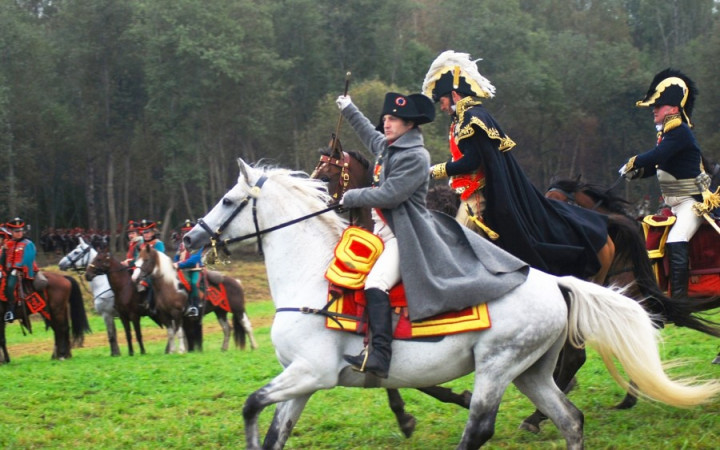When it comes to famous world leaders who made their mark on the world, there's one French leader who stands head and shoulders above the rest. Who are we talking about? Napoleon, of course!
Napoleon Bonaparte was born on August 15, 1769, on the island of Corsica off the southeast coast of France. Around the time of his birth, Corsica had been occupied by the French, and Napoleon would grow up attending military schools in France.
In the wake of the French Revolution, opportunities abounded for ambitious military leaders like Napoleon. Aligning himself with the leaders of the day, Napoleon soon found himself named commander of the Army of the Interior.
Through subsequent promotions, Napoleon proved himself to be a cunning military leader and strategist. He was also an astute politician who helped to create a new constitution for France and eventually rose to the highest-ranking government official in the country.
He implemented broad reforms that strengthened France's economy, as well as its legal and education systems. Napoleon is famous for his institution of the Napoleonic Code, which granted freedom of religion, eliminated privileges based upon birth, and demanded that government jobs be given to those most qualified to hold them. His popularity soared and, in 1802, Napoleon was proclaimed France's first emperor.
Despite negotiating a European peace treaty, Napoleon's thirst for military conquest soon had France at war again with Great Britain, Russia, and Austria. Napoleon's military genius led to victory after victory, greatly expanding the French empire.
His military success would not last forever, though. Beginning in 1810, Napoleon's forces began to suffer a number of defeats that would leave French forces decimated and strung out across Europe. Napoleon eventually surrendered in 1814 and went into exile on the island of Elba.
He would not be gone long, however. In March 1815, he escaped Elba and triumphantly returned to power in Paris. It did not take long for him to lead France back into battle. Unfortunately for Napoleon, he would soon face a final, decisive defeat at the Battle of Waterloo.
Fearing that he might return again, the British exiled Napoleon to the island of Saint Helena in the southern Atlantic Ocean. He spent his final years there in leisure, eventually dying of what experts think might have been stomach cancer on May 5, 1821.
Many consider Napoleon as one of the greatest military commanders of all time. His military campaigns are still studied at military academies today. In addition, his political reforms set the tone for enhanced freedoms. In particular, his Napoleonic Code was adopted in some form by many of the world's legal systems.





